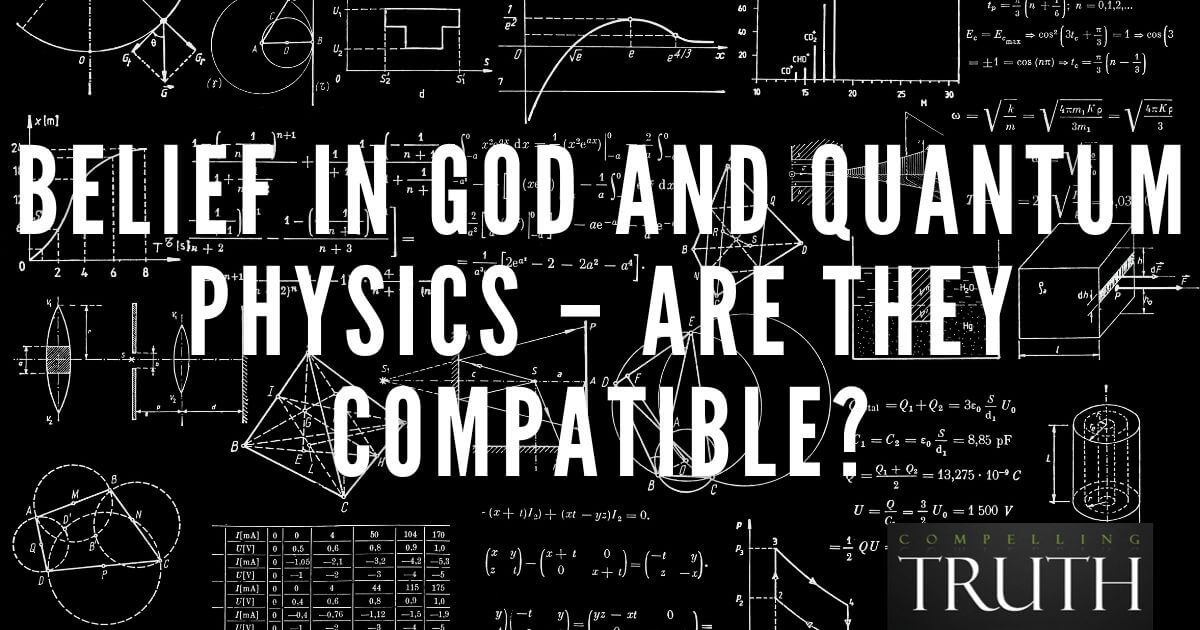Quantum Mechanics and God: Friends or Foes?

To many, the world of quantum mechanics (QM) seems like the final frontier where science can finally push God out of the picture. With its probabilities, uncertainties, and particles popping in and out of existence, it appears to challenge a structured, law-governed universe. However, a closer look reveals that QM is not a foe to theistic belief, but is, at worst, neutral and at best, a fascinating testament to the universe's deep, God-given rationality.
The "Weirdness" of Quantum Mechanics
It's true that QM is profoundly counter-intuitive. Key concepts that seem to challenge classical views include:
- Indeterminacy: At the subatomic level, events are probabilistic, not deterministic. We can predict the odds of an event, but not its certainty.
- Wave-Particle Duality: Particles like electrons behave as both particles and waves.
- The Role of the Observer: The act of measurement seems to affect the system being measured.
This "weirdness" has led some atheist thinkers, like Lawrence Krauss, to misuse QM. They claim it shows that the law of cause and effect is invalidated at the quantum level, thus allowing for a universe to spontaneously arise without a cause.
Why This is a Misuse of Quantum Mechanics
This argument is a significant overreach. As the file notes, even the great physicist Richard Feynman admitted, "I think I can safely say that nobody really understands quantum mechanics." Using a theory that even its masters find deeply mysterious as a philosophical trump card is precarious.
More importantly, QM does not produce something from nothing. Virtual particles, the classic example, are fluctuations of a pre-existing quantum field. They require the laws of physics, energy, and a field to fluctuate within. This is not "nothing" in the philosophical sense; it is a complex, law-bound "something."
A Tool for Discovery, Not a Disproof of Divine Action
From a theistic perspective, QM can be seen as a powerful tool that God ordained for understanding one layer of His creation. The fact that the subatomic world operates with such consistent, albeit strange, mathematical rules points to a deep-seated order and intelligibility in the cosmos—an idea that aligns perfectly with the Christian worldview that a rational Logos (John 1:1) underpins reality.
Furthermore, QM does not introduce true chaos; it replaces classical determinism with a different kind of law—statistical law. The universe is not lawless at its foundation; it is governed by a different type of rule.
A Matter of Worldview, Not Physics
As one nuclear scientist quoted in the file states, "QM's influence on one's perception of God is primarily determined by personal motivations—and one's worldview—rather than physics."
- An atheist may look at quantum indeterminacy and see a universe without a guiding hand.
- A theist can look at the same data and see a universe whose deepest workings are so profoundly mysterious and mathematical that they reflect the infinite creativity and wisdom of a Creator.
Conclusion
Quantum mechanics has not buried God. It has revealed a universe far more strange and wonderful than previously imagined. The attempt to use it as a proof for atheism is a category error, conflating a physical description of how things happen with a metaphysical explanation for why there is anything at all. The real message of quantum mechanics is not that God is absent, but that His creation is more astonishing than we ever knew.
Comments (Add)
Showing comments related to this blog.